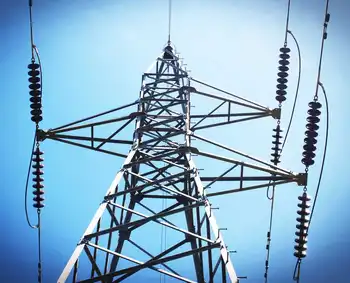Duke Energy Ohio reaches agreement on security plan
By PR Newswire
Arc Flash Training CSA Z462 - Electrical Safety Essentials
Our customized live online or in‑person group training can be delivered to your staff at your location.

- Live Online
- 6 hours Instructor-led
- Group Training Available
The agreement, which establishes generation rates for 2009 through 2011, must be approved by the PUCO.
Under the terms of the settlement, the base cost for generation service will increase by approximately 2 percent of the total bill annually in 2009 and in 2010 for residential customers, and each year from 2009 through 2011 for non-residential customers. The company's original application requested an increase of 6 percent in 2009, 2 percent in 2010 and a decrease of 2 percent in 2011.
The bill for generation service will continue to include cost-based trackers for fuel and purchased power, capacity purchases, and environmental compliance expenditures.
"This agreement establishes reasonable prices for dedicated sources of energy supply while providing additional funding to assist low income customers in this challenging economy," said Sandra Meyer, president of Duke Energy Ohio. "It will also provide Duke Energy with the resources to develop energy efficiency programs that will help all customers reduce overall usage and energy bills."
Under the terms of the settlement, the typical monthly cost for a residential customer using 1,000 kilowatt-hours will be $123.40 in January 2009, compared with the current monthly bill of $120.98. This comparison does not include the impact of Duke Energy Ohio's recent delivery rate filing of approximately 5 percent for a typical residential customer that is expected to be effective in second quarter 2009.
Over the three-year term of the agreement Duke Energy will contribute $2.1 million to assist low-income customers pay their electricity bills. Area community action agencies will administer the funds for distribution to eligible Duke Energy customers. In addition, low-income weatherization and energy efficiency funding will increase to $1 million per year.
The agreement includes funding for a new infrastructure modernization program that will begin the installation of Smart Grid technology. The new technology is an interactive digital system that can communicate with customers about their energy usage, monitor power quality, identify power outages, turn service on/off remotely, read meters continuously, and support energy efficiency. As a benefit of this program, tighter distribution system reliability targets are established in the settlement.
The agreement also replaces the existing energy efficiency tracker with a new Save-a-Watt model that will compensate Duke Energy based on the success of its energy efficiency programs.
The new energy efficiency programs, to include interruptible tariffs for business customers, will help customers lower their overall bills and will help Duke Energy achieve the significant energy efficiency targets established by Ohio's new energy law.
The settlement includes plans to develop an Electronic Bulletin Board that will help consumers compare competitor pricing for electric generation supply. Also, an economic development rate mechanism is established under the settlement to fund any individual arrangements or programs approved by the PUCO.
The agreement provides for an economic development grant to the city of Cincinnati. If approved by the PUCO, half of the grant to the city of Cincinnati will be recoverable in rates, while half will be borne by Duke Energy Ohio.











